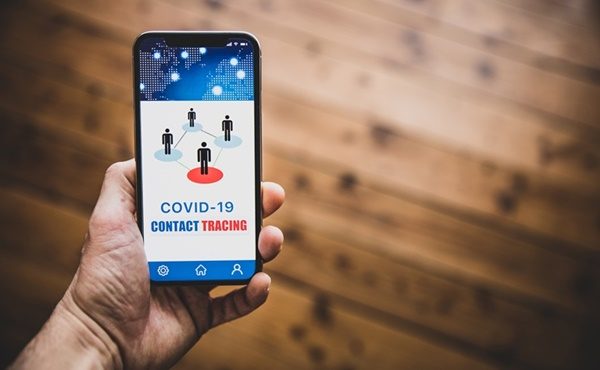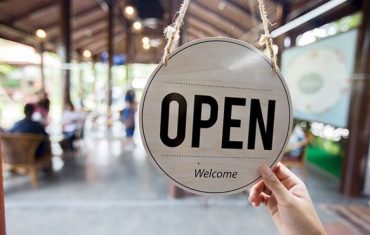New research from SafeEntry Australia has revealed that 30 per cent of Australian businesses with customer foot traffic do not use a visitor check-in system that complies with their State Government directives, and 21 per cent do not use a check-in system at all.
West Australian businesses are the least compliant, while NSW businesses are ahead of the country in the sophistication of their systems and government compliance.
Visitor check-in rules between the states
All States and Territories have issued a Direction or Order for businesses, premises and facilities that have obligations under the Privacy Act 1988 to collect personal information for Covid-19 contact tracing purposes.
For instance, the NSW Government has mandated digital record keeping for pubs, hotels and clubs, while in other business sectors, all visitor names and email or phone number should be recorded―either electronically or on paper.
Some Queensland business sectors must collect the name, number, email, date and time of patronage for all visitors, and keep for 56 days, while some SA business sectors must keep a name and a phone number or email.
Some sectors in Victoria must collect the first name and number of those visiting longer than 15 minutes, and keep for 28 days. WA businesses that think they have the potential to be exposed to Covid-19 must collect visitor contact details, and keep for 28 days.
How states compare with each other
Alarming proportion of businesses are not checking in visitors
Western Australia seems to be the least compliant state in adopting check-in systems, with 35 per cent of its businesses with foot traffic not checking in visitors at all. This is followed by 29 per cent of SA businesses, 22 per cent of Victorian businesses and 16 per cent of Queensland businesses who do not check in visitors. NSW is the most compliant state―just 14 per cent of its businesses don’t check in visitors.
Among businesses that do use a check-in system, 56 per cent across Australia use a paper-based system. Between the states, Western Australia has the highest proportion of businesses (69 per cent) that use a paper-based system to track visitors, followed by 67 per cent in the ACT, and an equal 57 per cent in Victoria and Queensland. Just 48 per cent of NSW businesses use a paper-based system. In fact, NSW has the highest proportion of businesses (at 56 per cent) that use digital check-in systems.
A significant proportion of businesses do not comply with state directives
The survey asked businesses whether their systems comply with their state government directives. Among those who utilise a system, Western Australia is the worst-performing state, with 45 per cent of its businesses answering ‘no’ or ‘I don’t know’ if their system complies. This is followed by 25 per cent of ACT businesses, 22 per cent of Queensland businesses, and 21 per cent of SA businesses who use some type of check-in system. More businesses in NSW and Victoria are confident their system complies, with just 19 per cent and 18 per cent answering ‘no’ or ‘I don’t know’ respectively.
Significant proportion of customers is not comfortable giving their details
With so many pubs, restaurants and cafes using paper-based methods―which can be seen by other patrons―this has created fears among customers about privacy breaches and safety concerns. Overall, 40 per cent business owners nationally said visitors did not feel comfortable leaving their details on paper for other visitors to see.
It seems that Victorians, Queenslanders and South Australians are least comfortable about giving their details to businesses―41 to 44 per cent of businesses in these states say their patrons have told them they are uncomfortable with it. This compares with just 25 per cent of WA businesses and 39 per cent of NSW businesses.
Two in three businesses want a better check-in and tracing system
Two-thirds (67 per cent) of businesses said they would be interested in a touchless check-in solution for customers, with an integrated touchless menu display, so they don’t have to worry about record-keeping. In fact, SafeEntry Australia found the majority of Victorian and WA businesses (an equal 75 per cent) want this kind of solution, followed by 71 per cent of NSW businesses, 57 per cent of SA businesses and 59 per cent of Queensland businesses.
How SafeEntry Australia works
SafeEntry Australia enables businesses to check-in an unlimited number of visitors at their premises using a unique QR code, as well as person-to-person check-in, and to trace visitors in the event of a positive case on their premises.
“With a surge in the number of coronavirus cases in Victoria, and fears that a second wave could permeate throughout other states, it’s more important than ever that business owners can rely on a sophisticated contact tracing resource that can keep themselves and their customers safe,” SafeEntry Australia spokesperson Linda Manoukian says.
“Our survey results show that even a paper-based approach for contact tracing is no longer regarded as safe and reliable. Customers feel they need a secure, touchless solution where their personal information can be safely stored.
“The SafeEntry Australia app helps solve the unreliability―and potential Covid-19 transmission risks ―associated with these kinds of tracing systems by offering contactless digital ‘check in’ for customers when they go to pubs, hotels and other venues.
“Plus, with digital record keeping becoming mandatory in NSW from Friday 24 July, SafeEntry Australia provides not only a solution, but an integrated patron verification and visitor health screening option.”







